In recent years, the BJP has been presenting itself as a party that is for women’s empowerment through slogans like “Beti Bachao/Beti Padhao” and “Mahila Shakti.” The UP Government is even presenting their Islamophobic “love jihad” campaign, which curbs interfaith marriages, as a redressal mechanism for women. However, the campaign is, in reality, an attempt by patriarchal, brahmanical forces to control women’s sexuality, as well as curb movements led by Dalit women.
Love jihad is an Islamophobic term used to describe interfaith marriages or relationships between Muslim men and Hindu women. Hindu vigilante groups describe these marriages as a farce, and have created a narrative that Muslim men target Hindu women for the purpose of converting them. Groups like the RSS also make claims that they will forcibly convert thousands of muslim women, but no law is made regarding this.
The Government’s claim that there is a rising number of interfaith marriages for the purposes of “forced conversions” is unfounded. Firstly, there is no official data on interfaith marriages that could back their narrative. But a study from 2013 suggests they represent about 2% of the marriages..Moreover, an investigation led in 2018 of 11 interfaith marriages following the Hadiya case showed no evidence of coercion.
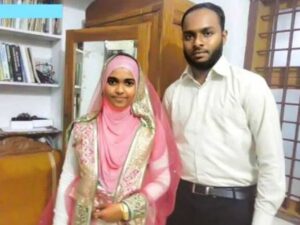
Nevertheless, many media channels and social media accounts have been adding to this narrative by fabricating stories where “Muslim” men attack their female partners, or where a woman’s parent allegedly opposing their union are made sympathetic. Many media channels also make the claim that Muslim men marry Hindu women for “trafficking” and “sending them to ISIS” after conversion. In many of these stories, the man is often not even Muslim. The purpose of this is to enrage and mobilise Hindu male “protectors”.
Most recently, yesterday, on 24th November, the Uttar Pradesh Government cleared a draft ordinance which lays down stringent laws against what they refer to as “Love Jihad.” According to it, for forceful religious conversions, there will be a jail term of 1-5 years along with a penalty of Rs 15,000 penalty for forceful religious conversion. For conversions of minors and women of SC/SC community, there will be a jail term of 3-10 years with a Rs 25,000 penalty.
Besides Uttar Pradesh, Madhya Pradesh also recently created a similar law, which made “love jihaad” into a cognizable offence where police officers could arrest without a warrant. This law also made it so that a woman of an SC/ST background would lose the right to reservations if she were to marry a Muslim. Uttarakhand and Himachal Pradesh also had brought in a severe law in 2018 and 2019 respectively. In Himachal Pradesh MLAs of the Congress also voted in favour of such a law. Haryana and Karnataka too announced their plans for the same.
Interfaith marriages are legally permissible under the Special Marriage Act, which recognises marriages outside the purview of religious laws. The Allahabad High Court also recently affirmed this as a fundamental right. For this reason, while demonising and objecting representations of all interfaith marriages between Hindu women and Muslim men in their speeches as well as media, legally the BJP Government focuses on “forcible conversions.” Through this, they create a narrative criminalising Muslim men as predators who “steal” Hindu women.
In the process, they strip women of their agency, and instead reduce them to their ability to reproduce and create progeny for a community. At the same time, they are also able to create a counter-narrative which appropriates from feminist discourses, but strip women of their agency.
Related: “Love Jihad”: Interfaith couples might face punishment up to five years in MP
Endogamy & Control of Women’s Sexuality
In one of the earliest writings in the women’s movement, Lévi-Strauss suggested that women are treated as a “supreme gift” by a group or community because they are necessary for reproduction. Through this alliances and kinship categories are created as women became a product for exchange.
Ambedkar’s writing on castes in India focuses on this concept, but in the Indian context. Under the Brahmanical patriarchy, the exchange of women follows what he calls “endogamy within exogamy”. Women are “given” in marriage to people of the same caste, but not from the same clan.
In order to maintain this “endogamy within exogamy,” the “surplus” men and women in a caste must remain the same. If not, a woman might have a child with some of the so-called lower castes. Because of this, Uma Chakravarty argues that women become the “gateways”. She writes, “The lower caste male whose sexuality is a threat to upper caste purity has to be institutionally prevented from having sexual access to women of the higher castes so women must be carefully guarded.”
However, while the caste system allows for ritualistically sanctified control over men from oppressed castes, Muslim men fall outside of this purview, making them a threat to the “Hindu Rashtra” and control of women’s sexuality.
Casteist Misogyny of the “Forced Conversion” Narrative
The BJP Government has also been trying to appropriate narratives and concerns raised by Dalit women’s movements in order to worsen the anxiety around “Love Jihaad.” Notably, both the law made by the MP Government discourages women from SC/ST backgrounds from marrying Muslim Men.
The UP Government stated that the growing attacks against Dalit women were cause for concern and the reason why they went ahead with the law. For this, they made the punishment for converting SC/ST women as well as minors harsher. However, Dalit women had been fighting against the domination of oppressor caste men, especially in relation to the Hathras case, where the perpetrators- who were shielded by the State- were not Muslims, but Thakurs. There has been no data suggesting that Dalit or Adivasi women are more likely to be “forcibly converted.”
On the contrary, many Dalits convert in order to avoid persecution within the Hindu caste system. Until he settled on Buddhism, Islam was Ambedkar’s choice of religion for oppressed castes to convert to. Notably, the law is also more severe on those who conduct mass conversions.
Can women not make decisions of their own?
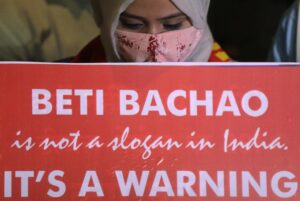
Moreover, while the BJP Government claims that the “anti-conversion” law is protect women’s rights and autonomy, it encourages violence against them from their families, including “honour killings“. For women, their social and material capital is tied to their families before marriage, not partners. So, the claim that their partners of choice are more likely to coerce them is incongruent.
It strips women of their own autonomy, and instead focuses on their “value” to their community of birth. This is apparent in BJP’s “women empowerment” campaigns such as “Beti Bachao”, where women are referred to as “daughters” who have to be protected by their family, and seemingly have no agency of their own.
This deeply Islamophobic and casteist rhetoric is rooted in the control of women’s sexuality by their group and reduces them to their ability to reproduce and to goods that can be exchanged. According to it, women don’t have the ability to choose their partners for themselves, and their worth is dictated by their ability to produce a son for their group. Moreover, it suggests that women would not have the desire or even the ability to convert because of their own wishes.
The concept of “Love Jihad”, then, is one that should be opposed by all women.

















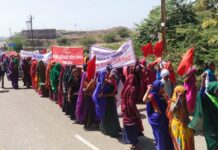




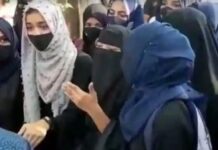
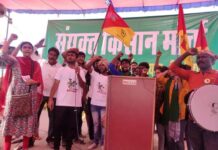




[…] Also read: Love Jihad: How “Forced Conversion” rhetoric strips women of autonomy […]